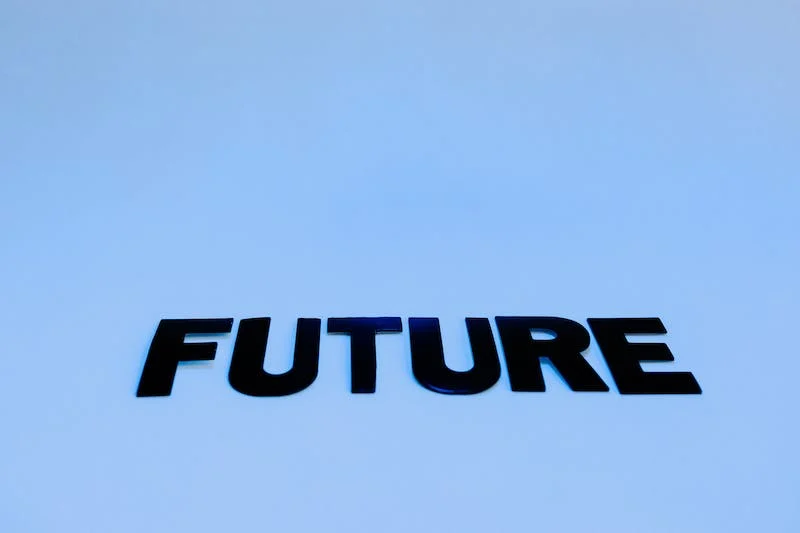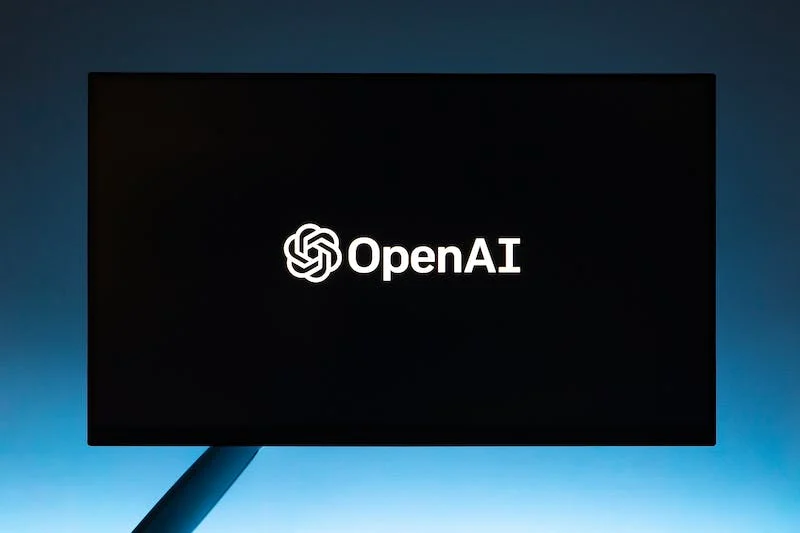Contents
- 1. The Data Explosion and the New Frontier of Risk
- 2. Privacy by Design: From Compliance to Culture
- 3. Cybersecurity in the Age of AI
- 4. The Ethics of Artificial Intelligence
- 5. Sustainability: The Hidden Side of Ethical Tech
- 6. The Human Factor: Training and Awareness
- 7. Balancing Innovation and Regulation
- 8. Case Studies: Ethics in Action
- 9. The Future: Trust as a Strategic Asset
- 10. Building a Responsible Digital Future
- Conclusion: Ethics Is the New Innovation
Meta Description:
As AI and data-driven business grow, organizations face mounting pressure to balance innovation with responsibility. Explore how Security, Privacy, and Ethical Tech are shaping the digital future in 2025.
Tech Business Correspondent
In today’s hyperconnected world, trust has become the ultimate currency of digital transformation.
As organizations scale their use of artificial intelligence (AI), data analytics, and cloud technologies, the question is no longer whether they can innovate — but whether they should, and how responsibly.
Across industries, companies are facing unprecedented pressure to secure customer data, protect privacy, and embed ethics into every layer of technology. This evolution is reshaping not only IT strategy but also corporate values, governance models, and public accountability.
According to a DCM Institute report, “security, privacy, and ethical tech are now central pillars of sustainable digital business.” And as Industry4o.com adds, these principles are “no longer optional—they’re prerequisites for long-term survival.”
1. The Data Explosion and the New Frontier of Risk
In 2025, the world is producing more than 463 exabytes of data daily — the equivalent of over 200 million DVDs every single day. From IoT sensors to customer analytics, AI models to remote work systems, this surge has given rise to both unprecedented opportunity and massive exposure.
With that explosion comes vulnerability. Cybercrime costs are projected to hit $10.5 trillion annually by 2025, according to Cybersecurity Ventures — up from just $3 trillion a decade ago.
“The more connected we become, the more fragile our systems become,” says Dr. Amara Patel, a cybersecurity strategist at Cisco. “The lines between personal data, enterprise systems, and public infrastructure are blurring.”
Organizations now face a balancing act: how to leverage data for competitive advantage without breaching trust or regulatory compliance.
2. Privacy by Design: From Compliance to Culture
For years, companies treated privacy as a compliance checkbox. Today, privacy by design — embedding data protection principles into every product, process, and algorithm — is becoming standard practice.
Global regulations like the EU’s GDPR, California’s CCPA, and China’s PIPL have forced businesses to rethink how they collect, process, and share data. But beyond laws, consumer expectations have shifted dramatically.
A 2025 survey by PwC Digital Trust Insights found that 82% of customers would switch brands if they believed their personal data was being mishandled.
“Privacy is now a competitive differentiator,” notes Rina D’Souza, Head of Data Ethics at Deloitte. “The companies that lead in transparency and consent management are the ones earning loyalty.”
Emerging Privacy Technologies:
- Differential Privacy: Adding statistical noise to datasets to anonymize user identities.
- Federated Learning: Training AI models without moving sensitive data from local devices.
- Zero-Knowledge Proofs: Enabling verification without revealing underlying data.
These innovations are redefining how businesses handle data responsibly while maintaining analytical power.
3. Cybersecurity in the Age of AI
Ironically, the same AI technologies driving innovation are also being weaponized by cybercriminals. Deepfake phishing attacks, AI-generated malware, and automated hacking tools are evolving faster than traditional defenses can respond.
As a result, companies are investing heavily in AI-driven cybersecurity — systems that can detect anomalies, predict threats, and respond autonomously in real time.
According to Industry4o.com, AI-enhanced security tools are expected to dominate enterprise IT budgets through 2026.
They help organizations anticipate attacks instead of merely reacting.
Notable AI Security Innovations:
- Predictive Threat Intelligence: Using machine learning to identify vulnerabilities before breaches occur.
- Behavioral Biometrics: Detecting fraud based on typing speed, mouse movement, or navigation patterns.
- Quantum-Resistant Encryption: Preparing for a post-quantum world where today’s encryption may no longer suffice.
Yet experts warn that even AI-based defenses must adhere to strict ethical standards. Overzealous surveillance systems or biased algorithms can violate privacy rights and trust — defeating the purpose of their protection.
4. The Ethics of Artificial Intelligence
The ethical implications of AI have become one of the decade’s defining debates. From biased algorithms in hiring to opaque recommendation systems shaping public opinion, the risks of unregulated AI are clear — and growing.
In 2025, AI governance is no longer theoretical. Governments and corporations alike are adopting AI Ethics Frameworks that promote fairness, accountability, and transparency.
The EU AI Act, set to take full effect this year, classifies AI systems by risk level and mandates strict oversight for “high-risk” use cases such as biometric identification or credit scoring.
“Ethical AI is not anti-innovation,” argues Dr. Wei Zhang, Director of Responsible AI at IBM Research. “It’s innovation with guardrails — ensuring that progress doesn’t come at the cost of human rights.”
Key Ethical AI Principles:
- Transparency: Users must understand how AI makes decisions.
- Accountability: Organizations must take responsibility for automated outcomes.
- Fairness: AI systems must avoid discriminatory patterns in data or outputs.
- Sustainability: The environmental impact of massive AI models — from energy use to hardware waste — must be considered.
5. Sustainability: The Hidden Side of Ethical Tech
While ethical tech often focuses on data and AI, environmental sustainability is rapidly becoming part of the same conversation.
Training a single large AI model can consume as much carbon as five cars emit in their lifetimes, according to MIT Technology Review.
Data centers already account for nearly 2% of global energy consumption, and that figure is climbing.
“We can’t call technology ethical if it’s destroying the planet,” says Maya Ruiz, Sustainability Lead at Google Cloud. “Green computing and carbon-aware AI must be part of the digital ethics agenda.”
Green Tech Innovations:
- Carbon-Aware Scheduling: Running computing tasks during renewable energy peaks.
- Server Virtualization: Reducing physical hardware waste.
- AI Efficiency Models: Designing smaller, energy-efficient algorithms.
From cloud providers to AI labs, sustainability has become both a moral and economic imperative.
6. The Human Factor: Training and Awareness
Even with the best encryption and AI defenses, humans remain the weakest — or strongest — link in the security chain.
A 2024 IBM report revealed that 95% of cybersecurity incidents can be traced to human error: weak passwords, phishing scams, or misconfigured systems.
Organizations are investing in digital ethics training, ensuring that every employee — not just IT staff — understands the impact of data mishandling, algorithmic bias, and privacy negligence.
DCM Institute highlights the importance of Ethical Tech Literacy Programs, designed to foster awareness across roles, from developers to executives.
“Ethical technology isn’t just a policy; it’s a mindset,” emphasizes D’Souza. “Every decision about data, automation, and AI must consider the human consequence.”
7. Balancing Innovation and Regulation
The tension between rapid innovation and regulation remains one of the most challenging aspects of ethical tech governance.
Big Tech firms argue that excessive oversight could slow progress, while regulators warn that unrestrained innovation risks societal harm.
Finding equilibrium is key.
The OECD’s Global AI Principles, adopted by over 40 countries, aim to establish this balance by promoting transparency, accountability, and human-centric design without stifling creativity.
Meanwhile, emerging standards from organizations like ISO/IEC are defining frameworks for secure and ethical AI deployment — offering global consistency across industries.
8. Case Studies: Ethics in Action
1. Microsoft’s Responsible AI Framework
Microsoft continues to lead in operationalizing ethics through its “Responsible AI Standard,” a blueprint for embedding fairness, transparency, and human oversight into every AI product.
The company also established an Office of Responsible AI to audit algorithms and assess potential harm before deployment.
2. Apple’s Privacy-Centric Ecosystem
Apple’s “Privacy. That’s iPhone.” campaign reflects its long-term strategy of differentiating through data protection. Features like App Tracking Transparency have set new norms for digital consent management.
3. IBM’s Ethical AI Toolkit
IBM offers an open-source AI Fairness 360 toolkit, enabling developers to test algorithms for bias. It’s a practical step toward industry-wide accountability.
4. Public-Sector Leadership
Governments from Singapore to Canada are publishing ethical AI guidelines, mandating public disclosure of automated decision-making systems and ensuring citizen protection.
9. The Future: Trust as a Strategic Asset
As the line between physical and digital worlds fades, trust will define competitive advantage.
In an economy powered by data, algorithms, and automation, organizations that prioritize security, privacy, and ethics will lead — not just because it’s right, but because it’s profitable.
A recent Accenture Strategy study found that companies with strong digital ethics outperform peers by 12% in revenue growth and 9% in customer retention.
“Ethical tech is no longer a CSR initiative,” says Patel. “It’s a business strategy — the new foundation for digital trust.”
10. Building a Responsible Digital Future
To stay ahead, organizations must take proactive steps toward ethical digital transformation:
- Integrate Ethics Early: Embed data privacy and fairness into product design, not after launch.
- Adopt Governance Frameworks: Implement AI ethics committees and transparent accountability models.
- Invest in Security Infrastructure: Use AI-powered detection, encryption, and continuous monitoring.
- Train and Empower Employees: Build awareness around data handling, bias, and sustainability.
- Collaborate Across Ecosystems: Partner with regulators, academia, and industry peers to establish shared standards.
The next era of technology will not be defined solely by innovation, but by how responsibly that innovation is achieved.
Conclusion: Ethics Is the New Innovation
As digital systems weave deeper into every aspect of life — from healthcare to education, finance to governance — technology’s moral dimension can no longer be ignored.
Security, privacy, and ethical tech are not side issues; they are the core infrastructure of trust in a data-driven society.
In the race to innovate, companies that lead with integrity will not only avoid risk — they’ll earn a reputation that money can’t buy.
“We’re not just building technology,” concludes IBM’s Zhang. “We’re building the future. And the future must be ethical, secure, and fair — or it won’t last.”
🔗 Sources & Further Reading
- DCM Institute – The Future of Digital Transformation Trends 2025
- Industry4o.com – Digital Transformation Trends for 2025
See related coverage: How Low-Code and No-Code Platforms Are Powering the Rise of Citizen Developers in 2025




